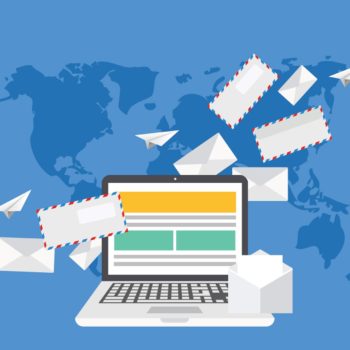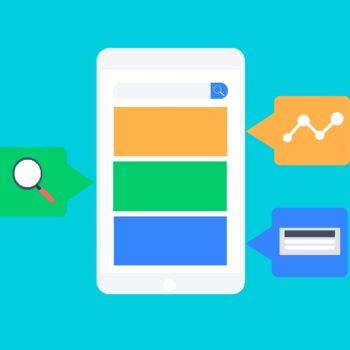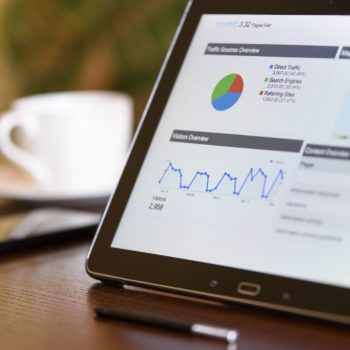Website loading speed is as important as ever, and many people don’t realize that when they’re creating websites. They believe that since internet connections are getting better and faster, that their website’s loading speed isn’t a major factor. But that’s not true, people want their pages loaded even faster now that they’re used to fast internet, lighting fast computers, and snappy smartphones. If the page isn’t loaded quickly, people may close the page and move on to a website that will respond at the speed they need. This can quickly lose you sales. Having a slow website can also lower your ranking on the search engines, since Google ranks faster websites higher.
4 WAYS TO MAKE YOUR WEBSITE LOAD FASTER
If you are unsure how fast your website is, use a site speed testing service such as GTMetrix,Pingdom Tools. or Google PageSpeed. These sites will often give you tips on certain items that can improve your site’s load time. We have also put together a short list of tips. After you’ve modified your website using the tips below, try one of those websites again in order to measure the site speed. You’ll be able to see a difference.
- Choose Your Website Host Wisely
When you are first creating a website, you may think that a shared host is a great bargain. However, shared hosts often slow down websites, incur long load times, and can even induce down time if you or one of the websites you share the server with has high traffic. A better host might be what you need if your website is taking a long time to load. Most major hosting servers offer dedicated server space now that will protect your site from getting bogged down by other sites that the host is supporting. Switching hosts can get complicated and will require an experienced web developer to make sure everything is switched properly. Because of this, it may be easier to start with some of our other tips.
- Optimize, Optimize, Optimize!
There are many things you can optimize if you’re worried about your load times. Your website’s home page, the images you use on your website, as well as the database – they can all be optimized in order to make the website load much faster for the visitors.
There are a few things you can do to ensure that your homepage loads quickly. You can reduce the amount of content on the page (images, text, posts, etc.). You can also remove unnecessary plugins, remove inactive plugins. You don’t need to place EVERYTHING on a home page, minimal is fine, as long as users can find what they need or least can be directed to the right spot.
Image optimization is very helpful in increasing website speed because reducing the file size of an image helps the website load quickly. There are a few plugins including WP-SmushIt that automatically reduce the file sizes of your images without burning out the quality of the images.
Database optimization is often one of the most helpful things you can do in order to reduce loading times on your website. This can be tedious and exhausting but can be easily done using plugins such as the WP-DB Manager plugin, the Optimize Database after Deleting Revisions plugin, or the WP-Optimize plugin. The biggest issue with WordPress’ database configuration is that it keeps a lot of unnecessary data and information. Post revisions, spam comments, trash – these are typically included and kept around in the default configuration causing your database to become bloated with information, ultimately slowing down your website.
One thing you can do without using a plugin is to change and limit the number of post revisions saved on WordPress. All you need to do is add a line of code to your wp-config.php file.
Code:
define( ‘WP_POST_REVISIONS’, 3 );
- Enable Website Caching
One helpful thing you can do to increase your website’s load speed is to enable website caching. Investing in (free!) caching plugins can help you drastically improve your website’s loading time. These plugins generate static HTML files of your webpages and display them, lowering the number of requests to your server.
One great plugin for website caching is W3 Total Cache. We recommend that you check this plugin out and see if it’s right for you.
- Use A Content Delivery Network (CDN)
CDN’s can be expensive, but also completely worth it, especially if your target audience is global. This is because anytime your website is visited, the user’s computer has to download files from the server (the time it takes to do this is called response time), and the further away your user is from where your website is hosted, the longer this will take. CDN’s, however, remove this problem by taking a copy of your files and storing it in one of their databases that are located worldwide. So when users visit your website, they will download a copy of the files from the database closest to them, ensuring quick loading times.
After you try out these tips, remember to use a site speed testing service like the ones we mentioned above, to see how much these tips helped your website.
At digiTech Web Design, we can help your website load faster. Not only can we do that, but we can also help you increase your conversions and make your website both quick and aesthetically appealing. If you’re interested in making your website better than ever, contact us today!






